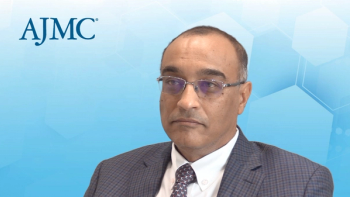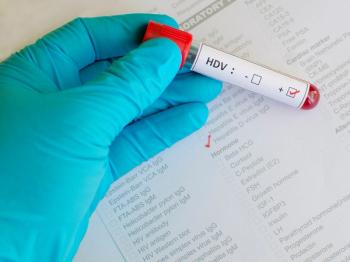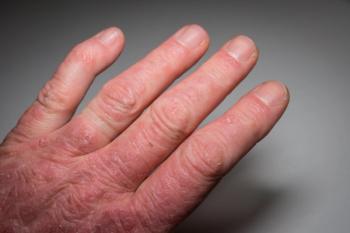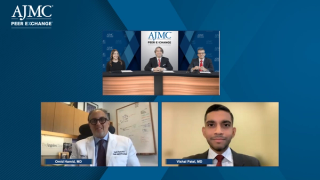
Clinical
Latest News
Latest Videos
CME Content
More News

Secondary effects not only improved past 16 weeks, but showed a sustained improvement at week 56 of mavacamten, said Milind Desai, MD, MBA, director of the Hypertrophic Cardiomyopathy Center and vice chair of education at the Heart, Vascular & Thoracic Institute, Cleveland Clinic.

According to researchers, only 3 studies have previously explored a potential link between AD and dementia with inconsistent findings.

Despite seeming to elicit more pathological complete responses (pCRs) in patients with hormone receptor–positive (HR+), HER2-negative triple-negative breast cancer (BC) receiving neoadjuvant chemotherapy, diet and exercise did not affect relative dose intensity.

One-fourth of patients who switched to an infliximab biosimilar retransitioned back to the originator, but they were more likely to subsequently discontinue treatment due to an unwanted response after switching back.

A PET-based radiomics signature was able to predict the efficacy of chimeric antigen receptor (CAR) T-cell therapy and performed better than conventional PET biomarkers in patients with relapsed or refractory (R/R) diffuse large B-cell lymphoma (DLBCL).

Patient acceptable symptom state (PASS) may be a reliable indicator of long-term outcomes among patients who have myasthenia gravis (MG).

Several trial participants experienced concerning hepatobiliary events.

Researchers found that individuals who used e-cigarettes had a higher smoking abstinence rate in late pregnancy than those who used nicotine reduction therapy, especially for those who began using e-cigarettes before pregnancy.

Risk factors for developing polycythemia vera (PV) are discussed by Aaron Gerds, MD, MS.

Hidradenitis suppurativa (HS) may involve skin or nerve ending changes that could lead to peripheral neuropathy and changes in the transduction of specific stimuli.

Despite not reaching statistical significance, findings from DICTATE-AHF show early dapagliflozin improved decongestion and led to earlier hospital discharge for patients with acute decompensated heart failure, explained Zachary Cox, PharmD, professor at Lipscomb University College of Pharmacy.

Patients treated by rheumatologists were more often treated with tumor necrosis factor inhibitors, according to one study.

Researchers developed a novel “closed-loop” system that delivered electrical pulses in a brain region to synchronize brain activity recorded from another region in the brain to improve memory.

Experts share insights on the use chemotherapy and immunotherapy in driver-negative patients, along with the use of PD-L1 inhibitors.

Researchers found indicators that increased the risk of thromboembolic events in patients with paroxysmal nocturnal hemoglobinuria (PNH).

Experts discuss the significance of treatment selection in patients with driver mutations.

No significant differences in resistance were observed against participants with acne vulgaris (AV) against 7 antibiotics.

Lisa Rometty, CEO at Zerigo Health, discusses digital health innovations, strategies, and partnerships to improve the lives of patients living with chronic skin conditions.

RSV diagnosis can lead to an array of financial complications.

However, women with type 2 diabetes and polycystic ovary syndrome (PCOS) in pregnancy did not have worse neonatal outcomes, a study found.

The authors use surgical resident assignment as an instrumental variable for discharge opioid prescribing and estimate the impact of discharge opioid supply on subsequent use.

A panel of medical experts begin a discussion addressing the incidence and prevalence of chronic kidney disease (CKD).

Dr Haumschild drives a conversation regarding CKD treatment in the presence comorbidities such as cardiovascular disease and type 2 diabetes.

Researchers noted that the relationships between smoking, chronic obstructive pulmonary disease (COPD), and depression must be recognized to effectively manage the complicated care needs for this patient population.

Osimertinib administered in addition to chemotherapy showed more progression-free survival (PFS) benefit than just osimertinib in patients with epidermal growth factor receptor–mutated (EGFRm) advanced non–small cell lung cancer (NSCLC).













